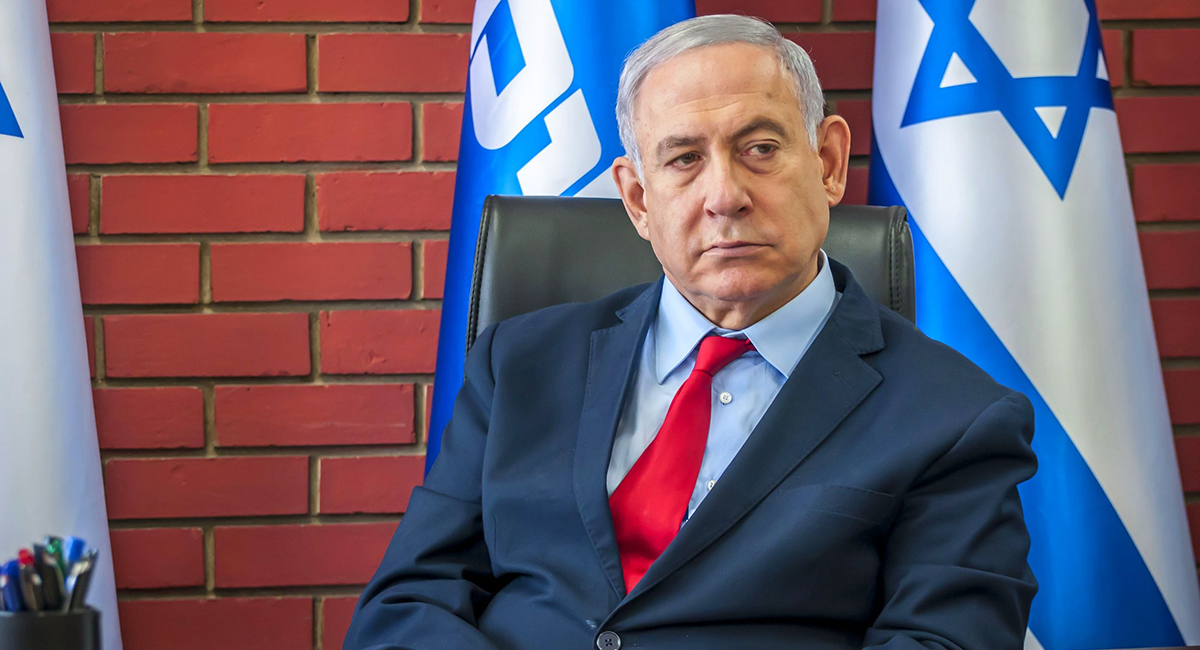The shocking news that the vaunted Israeli security services were completely surprised by Hamas’ attack on Israel, even though that security establishment had obtained a detailed plan of the actual attack more than a year ago, should lead the U.S. government to question the Israeli government’s broader strategy in the Gaza war. Because the Biden administration has given the Israelis full-throated political backing for the war and the United States has provided billions of dollars annually in military aid to Israel for decades, the American government is almost a co-belligerent in it. The Biden administration, only belatedly, has started to restrain Israel from conducting the war in a manner that will either lead to a dilemma, a long-term spike in terrorist activity, or both.
The Israeli security services’ latest blunder in underestimating their opponent, as many militarily dominant countries do, is similar to the Israeli intelligence failure in the 1973 Yom Kippur War and the George W. Bush administration’s ignorance of warnings about a catastrophic terrorist strike before September 2001. In the current case, even with Hamas’ detailed invasion plan in hand and warnings from a perceptive intelligence analyst that the group was conducting exercises to execute it, higher levels of the bureaucracy pooh-poohed the warning by espousing the groupthink that Hamas didn’t have the military capabilities to pull off such a daring stunt. Israel should have known better. Instead, it winked at Hamas’ rise because it acted as a counterweight to the Palestinian Authority in a “divide-and-conquer” strategy that allowed Israel to settle more land in the West Bank methodically.
Initially, after the horrendous Hamas attack that killed 1,200 Israelis, President Joe Biden went all-in, backing Israel’s “right to self-defense.” Biden visited Israel and even attended a war cabinet meeting to show his unlimited support. Israel interpreted the visit as signaling a U.S. blank check to take down Hamas using its usual counterproductive, disproportionate martial techniques. Israel regularly makes it a point to kill more Palestinians than the Israeli body count—as a supposed deterrent. Because the violence over land in Palestine has been ongoing for decades, the deterrent value of disproportionate violence is questionable, especially when vast numbers of Palestinians are killed after Israelis claim that they are merely trying to eliminate terrorists surgically. Historically, extreme violence against civilians makes the enemy fight harder. Even if the Israelis manage to eliminate Hamas, the mass killing of Gazans (about 24,000 as of this article) will be long remembered, as even more virulent anti-Israel groups, fueled by the resulting hatred, will likely take its place. (An example of this phenomenon is Al Qaeda in Iraq—which had formed because of the U.S. invasion of Iraq—it morphed into the more virulent ISIS, which later took over about one-third of the country.) This may be the best case for Israel; the fight against Hamas and re-occupation of Gaza could turn into a military quagmire, with continuing civilian deaths and a resurgent Hamas on steroids (similar to how the U.S. invasion and long-term occupation of Afghanistan led to a resurrected Taliban).
Hamas’ plan, as with most guerrilla and terrorist groups, was to launch a brutal attack to bait the stronger party into an over-the-top retaliation that would generate further support and resources for its cause. Benjamin Netanyahu, like Bush after 9/11, has taken their bait hook, line, and sinker.
After Biden’s initial over-the-top support for Israel, he later warned the Israelis not to make the same mistakes of overreaction that the United States did after 9/11. He has also wisely warned Israel to dampen civilian casualties and allow humanitarian aid into Gaza. Yet, the Israelis continue to deploy air strikes in densely populated urban areas to kill terrorists. It is a myth that such “precision” strikes can take out terrorists without harming civilians. Even if the proper target is hit, the size of the weapons being used will cause significant civilian casualties. Yet, such weapons can also miss their targets because of malfunction or lousy intelligence. The fact that the Israeli security services were blind-sided by the initial Hamas attack likely indicates their information about and assessments of Hamas may not be all that good—resulting in mistakenly hitting many civilians.
Thus, the proper way to do counterterrorism—with the goal being to eliminate more terrorists than are created in the long term—is to primarily use troops on the ground. However, that would increase Israeli casualties, causing Netanyahu trouble at home. He is already unpopular because Israel was surprised by Hamas’ attack, and his attempt to neuter the Israeli judiciary drew massive protests. But because Gazans don’t vote in Israel, cutting Israeli casualties by heavy bombing is the route Bibi is taking, even though it will likely make the terrorism problem worse in the long term. Netanyahu may even be incentivized to extend the war as long as possible. Because when it ends, he may be thrown out of office, increasing the chances of his three indictments turning into convictions. Thus, the Biden administration, after going too far in its initial support for Israel, should at least impose conditions on the massive war aid package for Israel and maybe even cut it back to induce Israel to adopt a more targeted counterterrorism military effort.
Of course, if fairy dust was spread all over Palestine and every party did the rational thing, Israel would throw off Netanyahu and deal with the root cause of the conflict. Israel has long had its state and should now return to the two-state solution to give the Palestinians one, too. Israelis and Palestinians could live in peace with mutual respect and a commercial relationship that would make both more prosperous. But this is the Middle East. Instead, Hamas’ attack has hardened Israel to undertake even more than its usual overreaction, which will likely lead sadly to further cycles of violence.

















